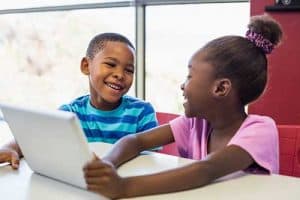Let’s Be Friends!
Making friends is an important part of your child’s development at preschool, and friendships often develop as children play and learn together. With a few tips, your guidance as a parent can help your preschooler to adapt to this new social environment and learn to play well and be a good friend in the classroom and at play.
Some children seem to make friends easily. They might be able to name their friends. They might look for their friends when they arrive at preschool or playgroup, or ask you about having playdates with their friends.
Some children might not have friends they can name, but they might be keen on making friends. And others might be slower to warm up and need time to watch what happens before joining in.
Friendships help children feel like they belong, which is good for children. Knowing how your child responds to other children gives you a good basis for helping him make friends and friendships in a way that suits his personality and temperament.
Preschoolers develop friendships during play. And as your child plays, she builds skills that help her with friendships now and in the future. These are skills like sharing, taking turns, cooperating, listening to others, managing disagreement, and negotiating different views and ways of thinking about things.
It might help to remember that many of these skills are hard even for adults. Your child is still learning and she needs lots of opportunities to practice being a good friend.
Providing time for children to play with other children from preschool or playgroup can help them develop friendships. Here are some ways that you can prepare your child from the homefront:
- Talk with your child about who he plays with, why he likes playing with them and what they like to play. If you know who your child likes to play with, you can talk to other parents about playdates.
- Make a time for children to meet and play. You could invite other children and parents to your home, or arrange to meet at a local park.
- Stay close. It can be reassuring for your child to have you nearby, particularly if the children don’t know each other well. As your child gets more confident you can be further away, although it’s still important to be aware of what’s going on.
- Keep an eye on what’s going on. This will help you know whether children are just enjoying some rough-and-tumble play, or whether the play is getting out of hand. If things are getting too rough, you’ll need to step in.
- Set a time limit for the playdate. When children get tired, they often find it harder to cooperate. It’s good to finish play time with everyone wanting to do it again.
Source: http://raisingchildren.net.au/articles/preschool_friends.html/context/557





